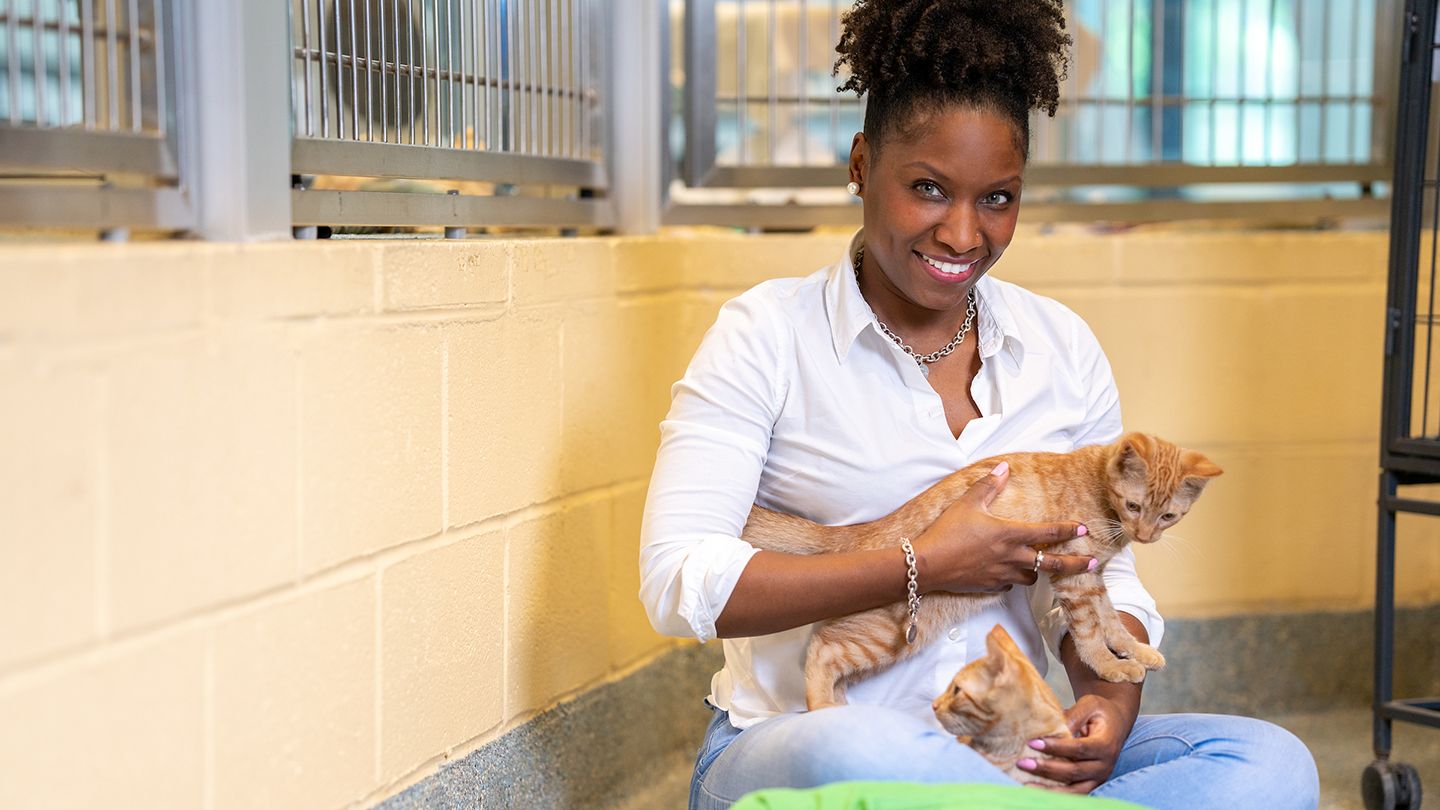Biology Major
Develop a natural curiosity and better understand the world around you.
Graduates follow many career paths and have several options for advanced degrees. Some graduates choose to work in environmental science while others pursue research positions in the life sciences. Many will go into medicine, dentistry, pharmacy or veterinary medicine and allied health fields.
Why study biology at the College of Charleston?
If you're looking for hands-on courses and undergraduate research opportunities, the College of Charleston is for you! You will take several specialized biology laboratory and field courses. Connect with faculty who have a range of research specialties to discover what inspires you. Interested in marine life? Take courses at the College's marine lab. Interested in medicine? There is a full-time advisor dedicated to students pursuing health-related professions.
What will I learn?
Depending on what you want to do after graduation, you can choose a bachelor of science or bachelor of arts in biology.
Biology, B.S.
This program provides a clear, defined pathway for students heading to medical, dental, veterinarian, graduate school or careers in biotech and wildlife biology.
View Curriculum: Biology, B.S.
View Curriculum: Biology, B.S. Biomedical Concentration
Biology, B.A.
This program is intended for students who are planning on nursing programs, or the allied health fields. It's also a great choice for students who want more flexibility for interdisciplinary study or who want to double major.
View Curriculum: Biology, B.A.
Of course, students in both programs succeed in a variety of health-related and scientific professions. All students will study biological theories, concepts and processes. Develop scientific inquiry skills leading to the design and execution of biological investigations. We emphasize:
- hands-on laboratory skills.
- field techniques.
- data analysis.
- critical reading of scientific literature.
- scientific communication.
- collaborative teamwork.
Program Highlights
-
Hands-on Learning
You learn best by doing. That's why we emphasize undergraduate research, internship opportunities and study abroad experiences.
ResearchWe have a thriving undergraduate research program. In fact, more than 100 biology majors conduct hands-on research each year.
There are so many opportunities for you to conduct biological research in the laboratory and field. You can partner with a faculty mentor and/or work with one of the local organizations.
- Medical University of South Carolina (MUSC)
- South Carolina Department of Natural Resources
- U.S. Department of Agriculture Vegetable Laboratory
- Hollings Marine Laboratory
- South Carolina Aquarium
You may also want to complete an internship. Previous students worked at environmental organizations, wildlife rehabilitation centers, government agencies and biotech companies.
Study AbraodRecently, students have studied abroad in places like:
- Panama.
- Bali.
- British Virgin Islands.
- Germany.
Many of our faculty-led programs abroad will expose you to tropical terrestrial and marine habitats. The Germany programs introduces you to the biotech industry and neuroscience.
-
Faculty Expertise
We have so many amazing faculty. This isn't a complete list, but a sampling of our faculty expertise includes:
- ecology.
- anatomy and physiology.
- molecular and cellular biology.
- genetics.
- biomechanics.
- neuroscience.
- biodiversity.
- computational biology.
Faculty work on microbes, plants and animals. They study in marine, coastal, terrestrial, tropical, temperate and arctic ecosystems.
Because our faculty have such a wide range of research interests, you'll have so many exciting opportunities in class and beyond.
-
Facilities
Rita Hollings Science Center. Home to biology students. It's a modern instructional and research center with labs and instruction rooms.
Stono Preserve. The 950+ acre living laboratory includes a myriad of ecosystems including long-leaf pine forests, wetlands, savannahs, tidal marshes, as well as brackish, saltwater and fresh-water ponds
Grice Marine Laboratory. Supports teaching and research in evolutionary biology, marine biogeography, microbial ecology, phytoplankton ecology, environmental physiology, fish systematics and other marine sciences.
Take advantage of the proximity of the Medical University of South Carolina, South Carolina Department of Natural Resources and USDA Vegetable Laboratory.
Careers & Outcomes
If your dream is to become a doctor, dentist or nurse, consider that our students are admitted to professional schools at a higher rate than the national average. Each year, we find that between 20-30 of our graduates matriculate to medical school programs.
Use your skills in research, data and statistics, computation, communication and more to succeed in a graduate or professional school or an exciting career. Take a closer look at the career journeys of our alumni and browse the data below to discover where their College of Charleston degrees have taken them.


Student Entrepreneur
Biology major Michele Graham invented a surrogate mother cat (Surro-Kitty®) to help foster abandoned kittens. She has launched a company to sell this veterinary device and plans to attend veterinary school after graduation.
Read More
About the Minor
A biology minor provides you with your core biological and chemistry coursework. It can be especially helpful if you major in another discipline, but plan to attend a graduate or professional program in a healthcare-related field.
View Curriculum: Biology Minor